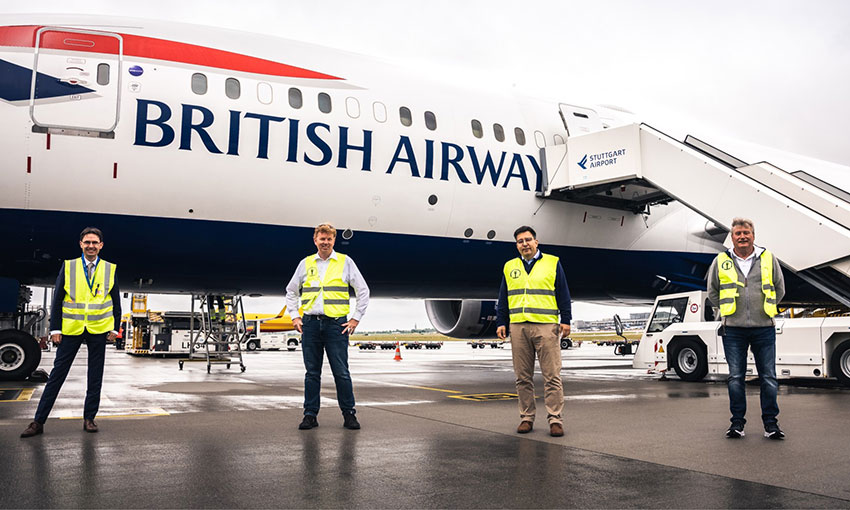KUEHNE+Nagel and IAG Cargo, the cargo division of International Airlines Group, completed a chain of 16 charter flights from Stuttgart to Atlanta fully carbon neutral after securing initial 1.2 million litres of what Kuehne+Nagel said is “sustainable aviation fuel”.
The company said the collaboration is the first time that such a charter chain is operated with net zero carbon emissions. The entire project used aircraft primarily suited for passenger travel, but temporarily operated in support of cargo.
The last of the British Airways B787-900 flights left Stuttgart on June 26 with an average of 45 tonnes of automotive spares and other industrial goods from shippers destined for Atlanta.
As SAF still produces some carbon dioxide emissions, complete carbon neutrality was achieved by substituting each litre of jet fuel kerosene used with 1.25 litres of “sustainable aviation fuel”.
Kuehne+Nagel board member Yngve Ruud, who is responsible for air logistics, said, “Climate change has now given new urgency to the search for clean, renewable fuels as they are currently the most effective measure to achieve true decarbonisation in our industry.
“Kuehne+Nagel is committed to increase its supply of SAF [sustainable aviation fuel] as part of our ambitious Net Zero Carbon programme. Our work with our suppliers is critical here, with trusted partners like IAG Cargo playing a vital role in the attainment of our goals by fostering deployment of sustainable fuels so our like-minded customers can ship their products CO2 neutral in an easy and transparent way.”
IAG Cargo CCO John Cheetham said, “International Airlines Group was the first European airline group to commit to powering 10 per cent of its flights with sustainable fuel by 2030. These charters mark IAG Cargo’s first step on that journey.
“We are constantly looking at ways which reduce our impact on the environment whilst improving our customer offering and we were delighted to support Kuehne+Nagel with sourcing this SAF to power these landmark charters, the first of many.”
Kuehne+Nagel said “sustainable aviation fuel” is the most effective measure to significantly reduce the environmental footprint of shipping. In contrast to fossil fuels, which are exhaustible resources and release additional carbon dioxide emissions, “sustainable aviation fuels” are produced from renewable feedstocks and have a circular carbon lifecycle aimed at re-using waste or biomass and emissions produced.

